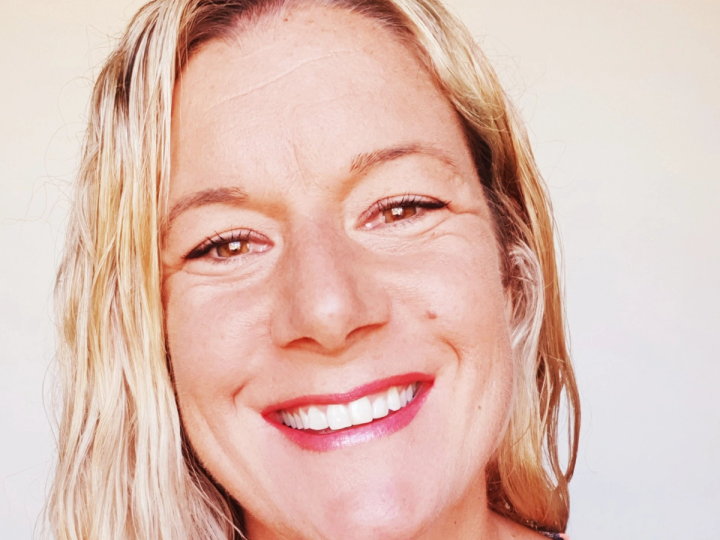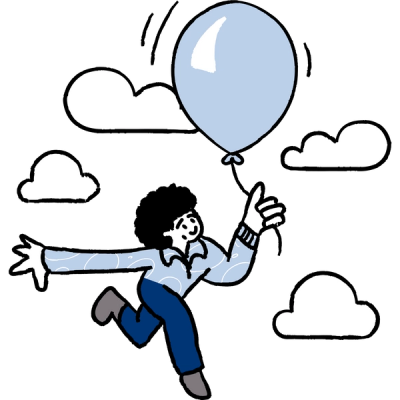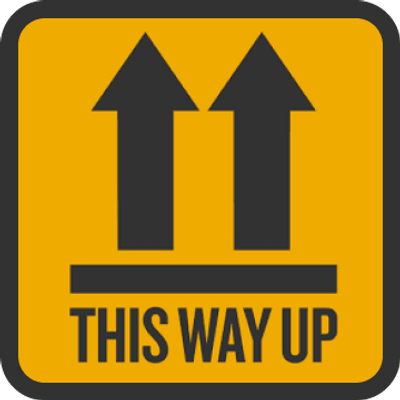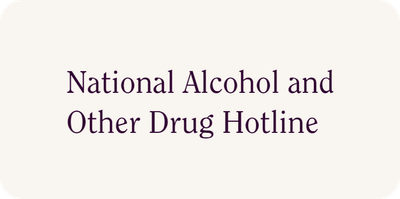Lizzie's story
Lizzie is a Lifeline help seeker, Life Mentor and Emotional Health Advocate.
She was sexually abused by a close family member for nearly 7 years as a child. She struggled with addictions - binge eating, drinking, self-loathing and perfectionism. Constantly lived with guilt, shame, pain and internal anger.
Only at 27, she opened up about the years of abuse. Not long after, she reached rock bottom. Her darkest hour. She contemplated ending her life. In that moment, she reached out to Lifeline for help and started her journey of healing and wellbeing.
Now, Lizzie has found inspiration, forgiveness, connection and her true purpose to live free, happy and inspire others to do the same.
Listen here
Watch here
Read transcript
Warning (0:00)
We acknowledge the lives lost to suicide and recognize those who have survived suicide attempts. And those who struggle today or in the past with thoughts of suicide, mental health issues and crisis situations, we acknowledge all those who have felt the deep impact of suicide, including those who love care and support people experiencing suicidality and those experiencing the pain and bereavement through suicide. We respect collaboration with people who have lived or living experience of suicide and mental health issues and value their contribution to the work we do.
Lizzie (0:31)
So in that moment, I knew I needed to speak to someone. That was when I called Lifeline. And that phone call changed my life. And I'm so thankful that I was able to take that step.
Darcy Milne (0:45)
Welcome to Holding on to Hope, the series that shares the stories of everyday Australians that have experienced moments in crisis and found a path to support. Whilst all of the stories shared of hope and inspiration, at times, you may hear something you find triggering. If that's the case, you can call Lifeline at any time on 1311 14.
Ruth (1:07)
Hello, and thanks for joining me. I'm Ruth McKellar, and I'm a telephone crisis supporter at Lifeline. I'm one of the voices you may hear if you call for support. When people find out that I volunteer for Lifeline, I'm often asked what led me to doing the work. So I'd love to share a little bit about my own story. At the age of 15, my dad took his own life. At that time of life, I didn't know what suicide really was, or the impact that could have. Yet over that time, I've learned to acknowledge suicide, what it means for me, my family, and most importantly, my late father. Over those years, I've wanted to create an impact that can really drive more conversations around mental health, but also ensure that people can have that hope by calling Lifeline. Four years ago, I was luckily involved and got given the opportunity to undergo training with Lifeline. And since then, I've never looked back. Four years later, here I am able to take you through what is some amazing journeys people have had, but also to ensure that everyone can hold on to hope, and most importantly, can always reach out to Lifeline. I found that sharing my story is a powerful way of helping others. And this is why I'm so passionate about hosting this series. If you're not quite ready to talk, perhaps you'll find comfort by listening to the stories of people who have experienced the value of reaching out for help. On today's episode of Holding on to Hope I'll be speaking with Lizzie. Lizzie is a lifeline help seeker life mentor and emotional health advocate. Lizzie was sexually abused by a close family member for nearly seven years as a child. Lizzie struggled with addictions, binge eating, drinking self-loathing. And perfectionism constantly lived with guilt, shame, pain and internal anger. At 27 she opened up to her father about the years of abuse. Not long after she reached rock bottom, her darkest hour, she contemplated ending her own life. It was then she reached out to Lifeline for help, and started her journey of healing and wellbeing. Now Lizzie has found inspiration, forgiveness, connection and her true purpose to live free, happy and inspire others to do the same. Lizzie, thank you so much for being on today's podcast. It's a real pleasure to obviously meet you before we jump deep into your journey and your story and how you became involved with Lifeline and gave our number a call. Can you just tell us a bit about yourself and what you do.
Speaker 2 (3:42)
I am a life mentor. I am someone who's also worked in the medical profession for over 20 years as a registered nurse. So I've always been passionate and dedicated in caring for and helping others. But during that time, I also needed to work through some of my life experiences and realize I actually needed to help myself. I am an avid surfer during some darker times in my life, I found my way back to surfing and it certainly will never leave me now that I've rediscovered it.
Speaker 3 (4:11)
Yeah very jealous. Cuz I've tried to become a surfer. I you know, I like to think I can try new things. But surfing is just one of those things that I can't seem to crack. At least I can lean on your sort of expertise if I need any surfing advice, or at least how to catch a wave and hopefully not end up on Bondi rescue. Growing up, you experienced abuse and at a very young age. Yeah. Would you be able to take us back to that time and what was going on then for you?
Speaker 2 (4:36)
Yeah, sure. So I was sexually abused as a child for nearly seven years. It happened within my family dynamic from around six years of age until nearly 13. So as consistent in nature, I felt very scared a lot of the time and very violated. And there were a few different incidences that happened outside of the home as well.
Speaker 3 (4:57)
How do you think it really impacted you? You know what feelings were you feeling or what was sort of happening for you then?
Lizzie (5:04)
Through those times, like I knew it was wrong, and I knew what was going on was affecting me. But I didn't have the understanding, or the insight to know why because I was so young. So what I would do when I would be filled with this dread, I needed to learn how to cope, I started binge eating at seven years of age. And I remember, it would just ease my pain, just for a little bit because I was suffering this emotional pain. And as soon as I'd had that sort of sweet hit of sugar, I would have a temporary relief. The other thing that I used to do was be busy, I used to clean the house, I you know, learned to become very domesticated at a young age, so I knew how to run a house by 10. I was cooking, cleaning, washing, gardening, you name it. And if I wasn't doing that it was schoolwork, wanting to be really academic and be the best I could at school, I was really obsessed with being perfect. I thought that if I could be perfect at everything, then I would be loved. I used these coping mechanisms, which helped at the time, but then also got progressively worse as time went on as well.
Ruth (6:05)
Do you feel that there was really the overall pressure to make everything look all good? And sound good from the outside? But on the inside, there was probably struggle there that you were just hoping was going to fade or not be there by filling the outside void if that's the right way to put it.
Lizzie (6:22)
Yeah, absolutely. And the more that time went on my whole demeanor of who I was this happy go lucky little girl and I know even from remembering how I felt it, but also you can look back at photos and see the the deterioration of my true self. So the tomboy aspect went more deeper into denying my femininity, and not wanting to be seen, because I didn't like who I was I self-loathing was, you know, my constant inner thoughts every day. And so having that cycle just to not want to be seen definitely deepened as time went on, because I just didn't have the skills or the education or the knowledge to know how to cope with what was going on. And I didn't feel like I was able to open up, you know, honestly, to my parents, you know, during those years as well.
Ruth (7:08)
There was, you know, a point in time where everything did change for you, and you had to reach out to Lifeline for help, can you take us back to that hour that time that place? What made you reach out for support?
Lizzie (7:20)
Fast forward into my 20s, that darkness just continued to build and build and build to the point that I couldn't hide it anymore. And that's where initially my addictions got much worse with binge eating. And then I started binge drinking. So I got to a point where nothing was working, I couldn't fight the emotional pain that I had any more because of this abuse, I couldn't hide it through food or alcohol or work yet I hadn't opened up to people about it either. So I knew that the battle was really affecting me deep down. And so from there, I knew I needed to break my silence and open up about what had happened not long after my mother and the rest of my family disowned me for speaking the truth of being sexually abused. After that day, I had my darkest hour and I was at home in my apartment alone. And I didn't want to be here. I didn't feel like I had a reason to live anymore. I didn't feel like I had a purpose. I didn't see any light at the end of this really dark, long tunnel. And at that moment of wanting to end it all, this little voice in my head said, you matter. Now show yourself this every day and your life will get better. So in that moment of this irrationality of shall I do this at all, you know, I just felt such peace going, well, maybe that's all I need to do is just show myself that I matter every day. And if I can do that, if I can do that in small steps, then maybe my life can get better. So in that moment, I knew I needed to speak to someone. That was when I called Lifeline. And that phone call changed my life. And the advice that I was given on that phone call truly was a turning point for me. And I'm so thankful that I was able to take that step, the counsel on the phone, he was absolutely amazing. Honestly, just so calm, so caring, and he just sort of guided me through my emotions at the time. And then my next steps, he said to me, you need to open up you need to open up to other people that you feel supported by that love and care for you and, and share what's happened. And so that night I did, I opened up to my uncle and auntie and my cousins, and to this day, they have been my family. They welcomed me with open arms and open hearts and I'm forever indebted to that phone call because that's what helped change the course of my life.
Ruth (9:39)
Lizzie to hear that firsthand, as someone that you know receives those phone calls is really so powerful because you often do get in situations where you feel incredibly alone. Too often you think ''Well who else can I turn to?'' in a way where they will just listen to you and be there for you and and ultimately, you know, be able to hold your emotions for you at that time and give you that support quite impactful to know that, you know, you've been able to reach out for Lifeline and receive that support at the time.
Darcy Milne (10:08)
We hope you're enjoying this episode. If you're not ready to speak to someone, but we'd like more information, curated resources and personal stories to support your journey, please visit toolkit.lifeline.org.au. Now, back to the episode.
Ruth (10:23)
Looking back, you know, what was your biggest hurdle in taking that first step and making that call to Lifeline?
Lizzie (10:32)
The biggest things that I certainly felt at the time was such shame and guilt around reaching out for support. I've lived life feeling shame all the time because of the abuse. And so then when you're trying to get your life together and sorted and move forward in a positive direction, despite what's happened, it was always really difficult to try and shrug that shame and that guilt off. Once I sort of understood, you know, okay, well, I'm feeling this low and this rock bottom, and I'm thinking about these things. I knew I just needed to help myself. And so part of that was being vulnerable, it was deciding to stop being so strong in a way that was actually destructive to me. And it was to drop that guard and say, Hey, this is me, this is my life story. I can't change what's happened. But I want to be able to move forward, I want to be able to have a healthy and happy life, I want to be able to heal from this, in that moment, in those moments that followed was a shift from going I'm a victim of this to I'm going to survive through this but not only survive, I'm going to thrive.
Ruth (11:33)
Sounds like you've done a lot of work, you know, to heal through this. Yeah. What changes did you make in your life to take you on your path to where you are today?
Lizzie (11:42)
Once I made that shift that I wanted to be here, each day, I would just learn something new about myself or I would go deeper into my vulnerabilities and stop being so scared of what I was feeling on the inside because essentially, that's what needed to come out. That's what needed to surface. And once I started understanding my emotions more and my feelings or how the beliefs I had developed, had affected the way I felt about myself or my life experiences and started being a lot more kind and gentle with myself then things started to make more and more sense. So there was like a lot of self-inquiry, lots of journal writing, facing any kind of uncomfortable emotion. Instead of going and eating food, I would go What is this? Okay, I'm feeling anxious, let this pass through me started spending a lot more time in nature. Then from there, it was like okay, meditation, or started doing some meditation and then realizing you can actually reprogram your mind through meditation. So I went deeper into that. And every day, I have non-negotiable me time. And it's usually how I start my day, all of a sudden, once I started realizing that all of these things are valuable tools to actually help me to heal myself. And then I could do that, then I was just open to so many different possibilities.
Ruth (12:50)
And Lizzie, can I just say how good is a bit of non-negotiable me time I love the way you put it like that. Because, you know, we sometimes always and I think maybe that's with all the information that we can access and see and view but also the way our lives can revolve that we too often don't, you know, step back and give ourselves that made up, you know, having that opportunity to have that made time, I think it's so invaluable, and we often don't appreciate it. And sometimes we probably don't even reflect on it and how much it can, it can really mean to us.
Lizzie (13:20)
Absolutely. And that connection with yourself, which is most important. And if you haven't established that at some point throughout your day, then you kind of go in this deficit, and you get to the end of the day where you're like, oh my gosh, I've just given to everyone else, but myself. It's like, Well, you're the only person that can actually do that for yourself. And We have certainly been conditioned, you know, in our lives through lots of different ways to put everyone else before ourselves. But when you find yourself in a position where you don't want to be here and all of your life's experiences, negative past experiences have caught up with you. At the end of the day, you've got to face yourself, you know, and you can be the one that can change what you need to change in your life.
Ruth (13:59)
Exactly. And since that call is to 13 11 14, what have you learned about yourself since making that call, you know, 13 years? Obviously, that's a long time. But in that time, can you sort of draw on a few things that you've learned about yourself?
Lizzie (14:15)
I've learned so much. One is the strength that I have. And I feel that it's always been within me, but I wasn't feeling it in a way that was empowering beforehand, because I used to think that vulnerability was weakness. When I first started speaking about my story, just to friends and colleagues and other people, you know, I would have a quivering voice and be very shaky. The more that I did that, and they started opening up about what happened to them. I was like, Oh my gosh, this is amazing. Like how many people have been affected by this. So from there, I just gained strength and confidence to own my story, but not to be a victim of any more but to share it in a way to help others and to be real to be authentic. We can live this life and tickle All these boxes and do things that impress people outside of ourselves, you know, and it's not really what we want. And that was the biggest thing for me was really finding out who am I and why am I here. And being in alignment with that,
Ruth (15:14)
We all know that everyone's story and journey and background, the cards that they've been dealt can be all different. But there's certainly on a lot of levels, a lot of connections that sometimes are very much suppressed. And without being said, and voiced and unearthed, it doesn't give an opportunity for other people to be able to go, you know, what I'm actually going through a pretty similar thing at the moment.
Lizzie (15:35)
Absolutely. And I know from not only my own personal experiences, but my professional experiences working, you know, as a nurse for 20 years, the last 11 were in an emergency. So I was at the frontline of everything going on. And that past decade, mental health was huge, absolutely huge. And whilst I was there working, and being a part of that, I knew, because of my own experiences, I really knew how to connect very well with people suffering from mental or emotional health problems. And the biggest thing that I would always understand from those experiences was that we all need to be seen, heard or listened to, and believed. And when you are able to do that in some capacity for yourself, or for someone else, it changes everything, the more that we speak about it, and the more that we connect on that level, the more that people can be helped.
Ruth (16:25)
100% Lizzie 100%. How would you describe yourself now, and that's not to, you know, say who you are and what you've come to be. But in general, you know, for yourself holistically, how would you describe yourself now?
Lizzie (16:39)
I'm completely free. I was seeking that all along, to heal and to feel completely free within myself and my life, I have a very flexible lifestyle. Freedom is my number one value. So whatever makes me feel happy and free is in alignment with who I am. Obviously, surfing is a great outlet for me to be able to do that. But I love connecting with people, I don't know, I just see people and I just see it as an opportunity to put a smile on their face, have a nice conversation, you never know where that connection goes as well, I think that we can all make a difference in this world to people. And because I've come from somewhere where I didn't feel very sane, I knew that if I could free myself from within, then maybe I can just be that positive influence for someone who might be going through something really tough. Everyone is valued. Everyone has their own story. And at the end of the day, human beings want to connect with human beings. And I know his social media is very big these days in our society. But there's nothing that can replace that human connection, that that that interaction and that feeling. Something that I learned through my experiences as well is that I felt very depressed when I looked back on my past and I felt extremely anxious looking forward into my future, I started practicing being present. And I was like, Oh, this, this feels good. This is easy. So that's naturally where I live each day, and just be grateful that I've, you know, wake up, and I am who I am. And I'm here to be who I am and try and make the world a bit of a better place with anyone I interact with through that day.
Ruth (18:05)
Such a great perspective, Lizzie. Yeah, living in the now, if you could give one message of hope to the people watching or listening, what would that be?
Lizzie (18:13)
It would be don't give up. And I know when you're at that point where you don't see any life, you don't see that there's a way to get through what you're going through, that just don't give up. When you decide I'm not going to give up, I'm going to keep going, I'm going to keep persisting because there's got to be some good around this corner. It's that step forward that will help you with the momentum, you've been seeking to actually start changing yourself what aspects of your life and with that drawn people around you, you know, draw on lifeline if you need, I wouldn't be here if I didn't reach out the way I did to lifeline that day. And if I could imagine the life I'm living now 13 years ago, I would struggle for someone to try and describe that to me. But at the same time, when you don't give up and you keep going even when it gets really hard. You'll have lots of moments where you feel like that's it. I just want to throw in the towel on this. something good happens just around the corner. And for me, my life shifted from that phone call and that day. And then I had a few challenges beyond that as well, where I was a slacker. This is just too hard. It wasn't a darkest hour moment but it was a point of putting so much work and I'm not seeing the results. And then something amazing would happen. I'd be like, ah, there's my hope. So my message is don't give up. You're not alone. There are so many people out there who are willing to help you who are willing to support you who have gone through their own experiences as well. And the more that we share, the more we don't feel alone in what we're going through.
Darcy Milne (19:40)
Thanks for listening to Holding on to Hope the podcast. Lifeline is grateful to all holding on to hope participants for choosing to share their personal lived experiences openly and courageously. In order to offer hope and inspiration to others. Your act of kindness makes for a better world. And remember, you can call Lifeline at any time on 1311 14.





